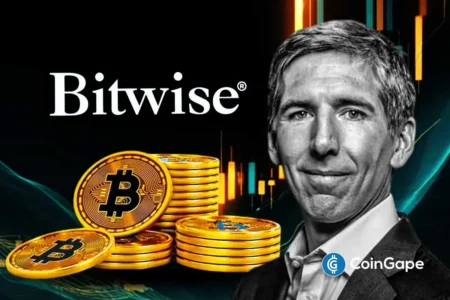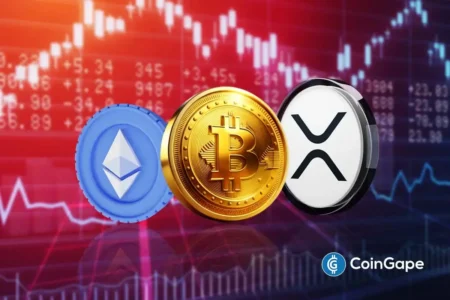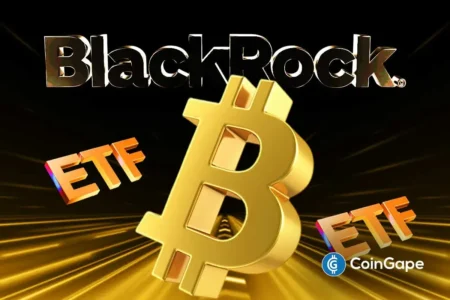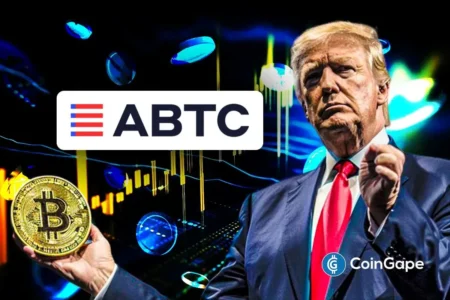Metaplanet’s Unique Bitcoin Strategy: An Insightful Analysis by CEO Simon Gerovich
In a rapidly evolving cryptocurrency landscape, Metaplanet’s CEO Simon Gerovich has firmly refuted claims suggesting that the approval of Bitcoin ETFs in the U.S. could adversely impact the company’s strategic focus. This debate has sparked extensive discussions in the crypto community regarding whether these institutional investment vehicles might overshadow Metaplanet’s innovative approach to Bitcoin exposure. Gerovich articulated that the skepticism surrounding the ETFs stems from a fundamental misunderstanding of what Metaplanet aims to achieve, positioning the company as a pioneer in the realm of Bitcoin investment.
Gerovich criticized Bitcoin ETFs for their passive investment strategy, explaining that these vehicles merely track the price of Bitcoin without actively increasing their holdings unless new capital is injected into the fund. This means that while ETFs provide fixed exposure to Bitcoin, they do not contribute to the growth of actual Bitcoin assets held within the fund. Metaplanet, in contrast, operates from a business-centric model that employs active investment strategies. The firm’s revenue generation and reinvestment strategies are designed to increase Bitcoin holdings dynamically, setting it apart from the static nature of ETFs.
The Metaplanet business model is focused on incrementally enhancing Bitcoin exposure per share rather than merely tracking the cryptocurrency’s price. This proactive approach distinguishes Metaplanet’s strategy from that of traditional ETFs, allowing the company to adapt and grow its reserves effectively. Gerovich’s perspective maintains that both structures fulfill different roles in the investment landscape, with ETFs serving as passive investment tools and Metaplanet carving out a unique niche as an active business in the crypto asset market.
Amid this discussion, concerns have arisen among Japanese investors regarding the potential implications of ETF approval for Metaplanet. In Japan, the cryptocurrency regulatory environment is shifting, with an ongoing reclassification of crypto assets as financial products. Notably, proposed tax changes will lower the tax on crypto gains from 55% to 20%. This reduction is anticipated to foster greater institutional adoption, making companies like Metaplanet that prioritize accumulating Bitcoin as strategic assets more appealing to investors.
The increased institutional interest, coupled with a favorable tax environment, has heightened Metaplanet’s profile in Japan’s crypto space. The company has garnered significant attention since its inaugural Bitcoin purchase in April 2024. Gerovich’s leadership and determination to innovate have led to plans for additional Bitcoin acquisitions, with Metaplanet looking to raise $100 million to bolster its Bitcoin portfolio further. This financial strategy illustrates Metaplanet’s commitment to actively managing and expanding its digital assets, even amidst fluctuating market conditions.
In conclusion, Gerovich’s remarks highlight a crucial distinction between Bitcoin ETFs and the operational model of Metaplanet. While ETFs may dominate discussions around Bitcoin exposure, they do not diminish Metaplanet’s competitive advantage. Instead, by focusing on active engagement and strategic asset allocation, Metaplanet is charting a distinctive course that promises to enhance its position in the cryptocurrency market. As this sector continues to evolve, the brand’s innovative approach is likely to resonate with investors looking for avenues beyond traditional ETF structures.
Metaplanet is not merely another entity in the cryptocurrency space; it represents a progressive model that combines principled investment strategies with a vision for long-term growth in Bitcoin holdings. Through its ongoing commitment to expanding exposure and attracting institutional support, the company is poised to make significant strides in the ever-competitive world of digital assets.
















